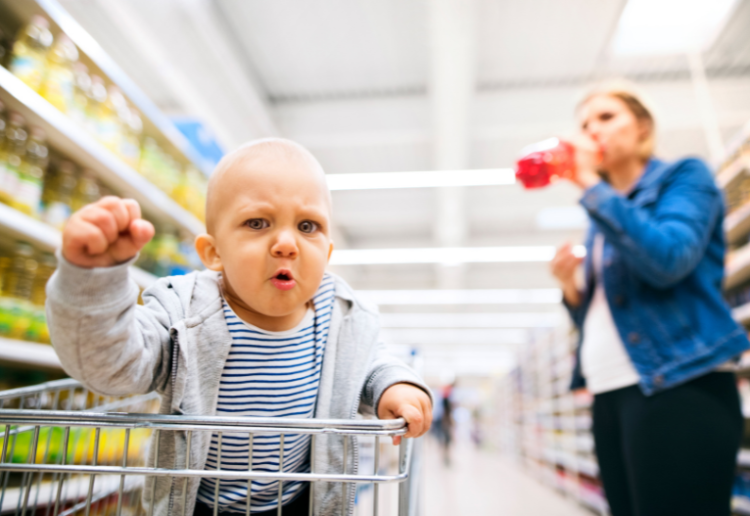It’s been revealed that popular baby and toddler foods sold in Australia are failing nutritional recommendations.
A new Cancer Council Victoria study has lifted the lid on the Australian supermarket baby and toddler foods we’re giving our children, and the results will shock most parents.
The research found than two thirds of baby and toddler foods in Aussie supermarkets fail to meet seven nutrition recommendations set by the World Health Organization’s (WHO) European office.
A total of 250 baby and toddler products found at ALDI, Coles and Woolworths were assessed for added sugar and sweetness, salt, fat, protein and energy levels, agains WHO recommendations.
WHO European Office recommendations
Baby and toddler foods should not contain added sugars and other sweetening agents;
Only limited amounts of dried or pureed fruit should be used to sweeten baby and toddler foods;
Baby and toddler finger foods and snacks should contain less than 15 per cent of energy from totals sugars.
Baby and toddler foods should contain less than 50 milligrams sodium per 100 grams and less than 50 milligrams per 100 kilocalories (unless the product contains cheese where the limit is higher).
The study found just five per cent of the snacks meet all seven recommendations, and only 13 per cent of baby snacks and 12 per cent of toddler snacks met all three recommendations for sugar and sweetness. While only half of the snack met sodium recommendations.
“These findings are extremely concerning and indicate an urgent need for action to protect the health of Australia’s most vulnerable consumers. For many children, these packaged foods make up a significant portion of what they eat every day,” Obesity Policy Coalition, Executive Manager Jane Martin said.
There are currently no regulations for toddler foods, while there have been limits set on how much sodium is allowed in baby food.
“For years, the processed food industry has prioritised their profits over our kids’ health. Australian families rightly expect foods marketed to vulnerable babies and toddlers to be healthy. Instead, the processed food industry pushes these baby and toddler products with names and claims that suggest they are healthier than they in fact are.”
She’s called on the federal government to set higher standards for both baby and toddler foods.
“It’s irresponsible and deceptive for the processed food industry to load up these products with added sugar and then market them specially for toddlers,” said VicHealth, Chief Executive Officer Dr Sandro Demaio.
“This dangerous ploy is a bid to boost profits and can lead to problems later in life, including weight gain and type 2 diabetes. Clear, transparent labelling is needed to help families better understand these products moving forward.”
A proposal to mandate labelling of added sugar on all packaged food is currently being undertaken by Food Standards Australian New Zealand.
“Honest, clear labelling of added sugars in packaged foods is critical particularly for packaged foods for babies and toddlers,” Ms Martin said.
“But first we must accurately define ‘added sugar’ to ensure it includes all sugars that consumers should limit and avoid in their diet. It’s crucial that this includes processed fruit sugars, like fruit pastes, juices and concentrates, which are often added to foods for our youngest Australians.
“Regularly eating sugary, sweet foods puts babies and toddlers at risk of tooth decay. It’s also concerning that most young children are not eating the recommended amount of vegetables. Babies and toddlers can eat the same healthy foods as families – but for babies it should be mashed and pureed.”




















8:21 am
10:31 am
12:43 pm
12:11 pm
12:49 pm
9:33 am
8:35 am
9:01 pm
-

-
-
mom93821 replied
- 01 Apr 2023 , 6:42 am
Reply6:57 pm
3:12 pm
7:09 am
6:07 am
8:37 pm
1:59 pm
1:37 pm
1:10 pm
12:12 pm
11:26 am
8:58 am
8:01 am
- 1
- 2
- »
Post a commentTo post a review/comment please join us or login so we can allocate your points.